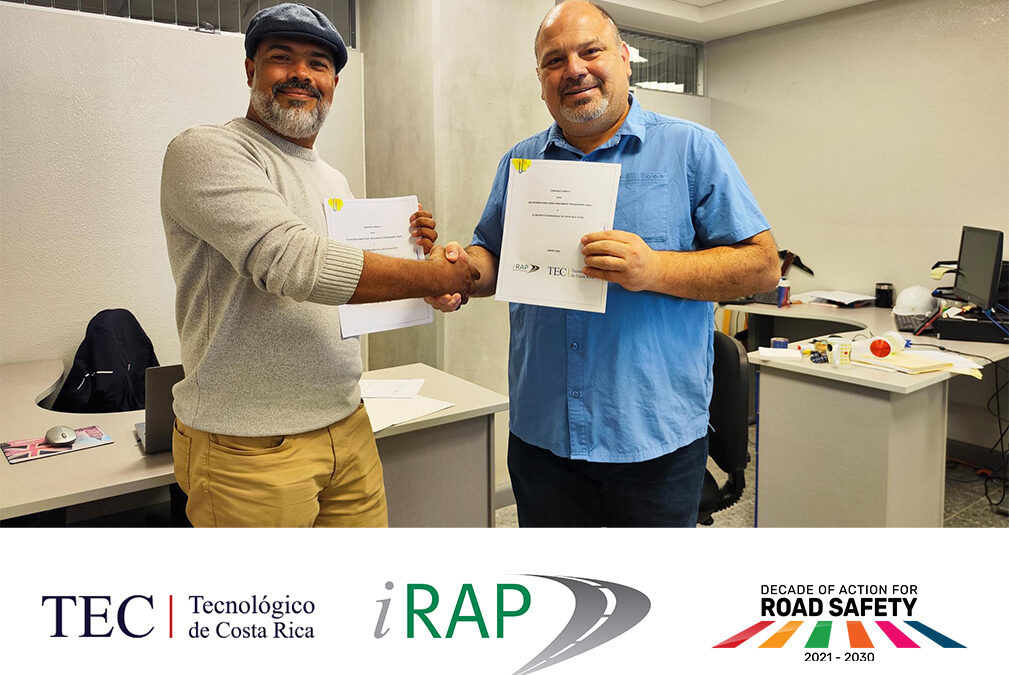The Costa Rica Institute of Technology (TEC) and the International Road Assessment Programme (iRAP) have signed a Memorandum of Understanding to promote road safety projects and programmes to eliminate high-risk roads in Costa Rica, with life-saving impacts likely in the wider Central American and Caribbean region.
TEC is the second-largest public university in the country, dedicated to teaching, research, and scientific and technical innovation for the development of Costa Rica and beyond.
The promotion of safe and sustainable transport, the application of the road safety assessment tools developed by iRAP, knowledge exchange, and the advancement of public policies and expert capacity for safe road infrastructure are key focusses of the collaboration.
According to World Health Organisation data, Costa Rica’s road fatalities number over 800 annually, with an additional 22,330 serious injuries. Road crashes cost the country 4.1% of its annual GDP.
Improving the safety of Costa Rica’s road infrastructure by 2030 has enormous potential – the saving of an estimated 59,718 deaths and serious injuries over the 20-year life of road treatments and an economic benefit of $8.80 for every $1 spent.
Speaking at the signing event, Professor Irving Pizarro Marchena of TEC said, “The signing of this MOU reflects the university’s leadership and priority to strengthen the safety of roads in Costa Rica and the region, working in technical partnership with international experts.”
“It supports fulfilment of the commitments and targets of the Global Plan of the Decade of Action for Road Safety 2021-2030 to halve road deaths and injuries by 2030.”
Edgar Zamora, iRAP’s Safer Journeys Lead for the Americas said, “This partnership is hugely exciting. TEC is an academic leader of renown not only in Costa Rica, but also Central America.
“This collaboration will be instrumental to the achievement of the UN Global Road Safety Performance Targets 3 and 4 in the country, which include ensuring all new roads are built to a 3-star or better standard for all road users (Target 3), and more than 75% of travel is on the equivalent of 3-star or better roads for all road users by 2030 (Target 4),” he said.

















